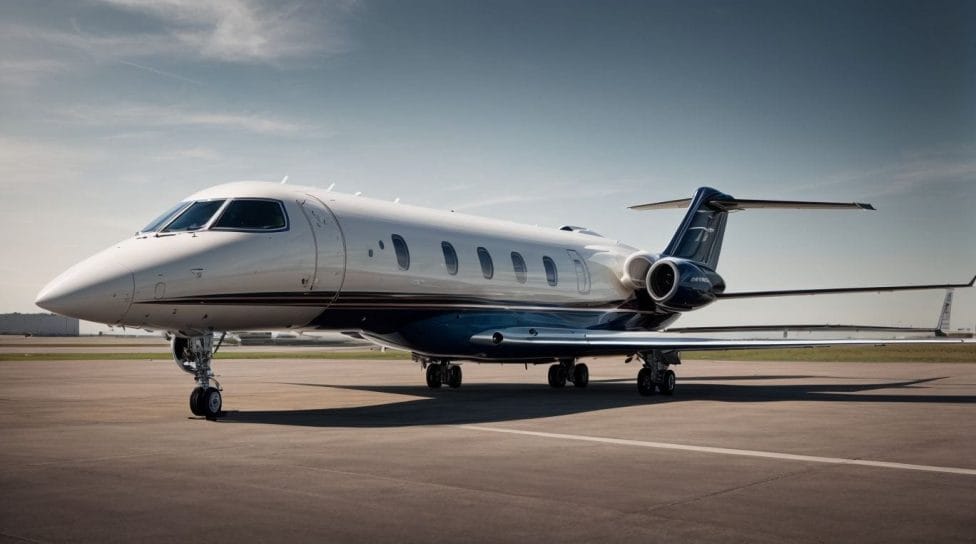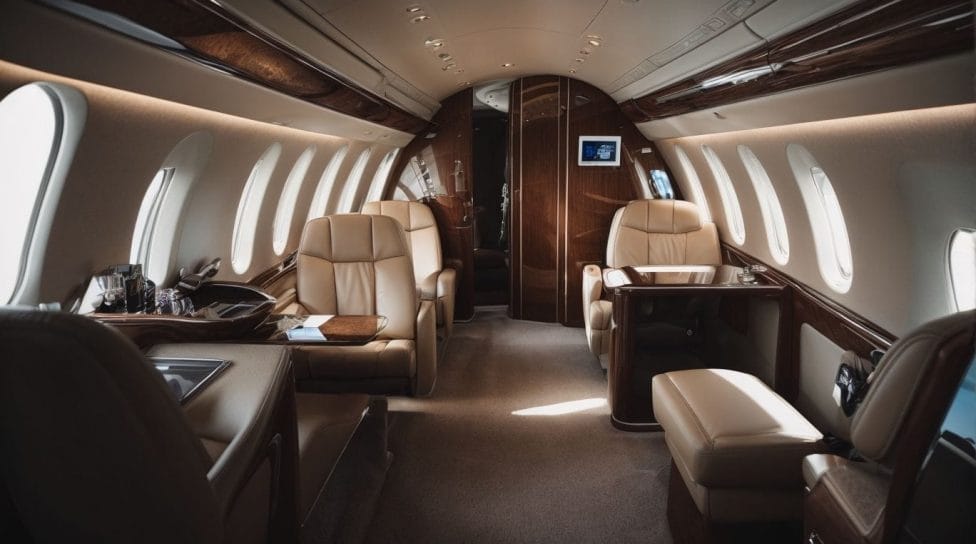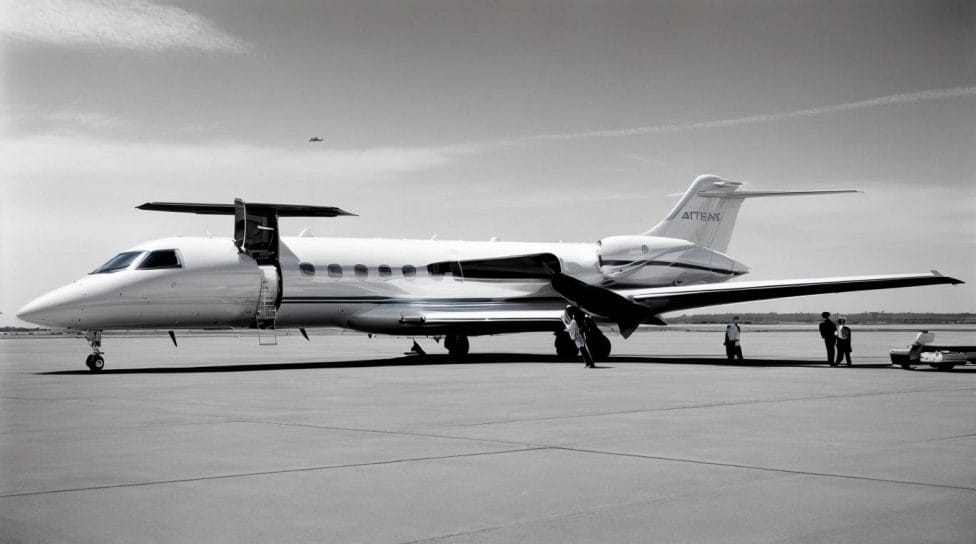The Transportation Security Administration (TSA) is a federal agency responsible for securing transportation systems in the United States. They are primarily known for their security measures at airports, including screening passengers and their belongings before they can board a flight.
Private jets, on the other hand, are not subject to TSA regulations as they are not considered commercial flights. Private jet passengers do not go through the same security measures as commercial airline passengers. However, private jets do have security measures in place to ensure the safety of their passengers and crew.
Some of the advantages of flying on a private jet include faster travel time, the ability to choose your schedule, and avoiding the long lines and crowds at airports. However, flying on a private jet can also be more costly and may not have the same amenities and services as commercial flights.
If you are planning to fly on a private jet, it is essential to be prepared. Make sure to bring any necessary travel documents, such as a valid ID and visa, if traveling internationally. Private jets have fewer restrictions on items allowed on board, but it is still important to check with your specific operator beforehand. Luggage restrictions may also vary, so it is best to confirm with your operator beforehand.
During a private jet security check, passengers may or may not be required to remove their shoes and go through a metal detector, depending on the operator’s regulations. Restrictions on liquids may also vary. It is best to check with your operator beforehand to avoid any delays.
In summary, while private jets do not go through TSA, they do have their security measures in place. These measures may vary depending on the operator, so it is important to check with them beforehand to ensure a smooth and efficient travel experience.
Key Takeaways:
- Private jets do not go through TSA security measures but have their security protocols in place.
- The advantages of flying on a private jet include convenience, privacy, and customization of the flight experience.
- To prepare for a private jet flight, bring necessary documents, follow restrictions on items and luggage, and expect a security check.
What is TSA?

Photo Credits: Jetsetlegion.Com by Christopher Hall
TSA stands for the Transportation Security Administration, a government agency in the United States that was established after the 9/11 attacks to ensure the safety of transportation systems. Its primary responsibility is to screen passengers, baggage, and cargo at airports to prevent any potentially dangerous items from being taken on board commercial aircraft. However, private jets typically do not undergo TSA screening as they follow different security protocols, which can differ based on the size of the aircraft, the purpose of the flight, and the destination.
Do Private Jets Go Through TSA?

Photo Credits: Jetsetlegion.Com by Mark Smith
Private jets do not go through TSA security checks like commercial flights. However, private jet passengers still undergo security measures such as background checks and identification verification. Private jet terminals typically have their security protocols in place to ensure the safety of all passengers and crew.
Suppose you are planning to fly on a private jet. In that case, it is recommended to check with your private jet operator or terminal for specific security requirements and procedures before your flight.
What Are the Security Measures for Private Jets?
Security measures for private jets include strict access control, thorough passenger screening, and baggage checks. Private jet terminals have designated secure areas that are only accessible to authorized personnel and passengers. Before boarding, passengers must undergo identity verification and may be required to provide additional information for security purposes. All baggage is thoroughly screened using X-ray machines or other security equipment. Private jet operators also adhere to security protocols set by aviation authorities. To further ensure the safety of passengers and crew, private jet travelers can take extra precautions such as securing personal belongings and reporting any suspicious activity. The safety and security of passengers and crew is of utmost importance to private jet operators.
What Are the Advantages of Flying on a Private Jet?

Photo Credits: Jetsetlegion.Com by Larry Rivera
There are numerous advantages to flying on a private jet compared to commercial flights. First and foremost, private jets offer unparalleled privacy and comfort, allowing passengers to relax or work without any distractions. Additionally, private jet travel allows for flexibility in scheduling, as flights can be tailored to the individual needs of the passengers. Private jets also have the advantage of being able to access smaller airports, resulting in less time spent on security checks and baggage claims. Moreover, private jet travel can save time by minimizing layovers and reducing overall travel time. Overall, flying on a private jet provides the ultimate convenience, comfort, and efficiency. Therefore, if one has the means, it is highly recommended to consider the advantages and explore the option of private jet travel.
What Are the Disadvantages of Flying on a Private Jet?

Photo Credits: Jetsetlegion.Com by Matthew Clark
While flying on a private jet offers convenience and luxury, there are also some disadvantages to consider. Firstly, the cost of chartering a private jet can be significantly higher than flying commercially. Additionally, private jets have limited seating capacity, making them unsuitable for large groups. Private jets also have restrictions on baggage allowances, which can be inconvenient for travelers with a lot of luggage. Lastly, private jets may have limited availability, especially during peak travel times. Considering these factors can help travelers make an informed decision about the potential disadvantages of flying on a private jet.
How Can You Prepare for a Private Jet Flight?

Photo Credits: Jetsetlegion.Com by Jesse Scott
Preparing for a private jet flight involves several important steps to ensure a smooth and enjoyable experience. Here is a list of key preparations to consider:
- Confirm the flight details, including the departure time, location, and any specific instructions from the operator.
- Prepare all necessary travel documents, such as passports and visas, to ensure a hassle-free journey.
- Pack your belongings according to the baggage restrictions outlined by the operator.
- Coordinate ground transportation to and from the airport, considering parking options or arranging for a private car service.
- Arrive at the airport ahead of time to allow for security screenings and any required check-in procedures.
- Communicate any special dietary needs or preferences to the operator in advance.
- Make sure you have all essential items for the flight, such as medications, electronic devices, and entertainment.
- Familiarize yourself with any specific rules or regulations related to private jet travel, such as smoking policies or restrictions on certain items.
- Relax and enjoy your private jet flight, knowing that you have prepared well for the journey.
What Documents Do You Need to Bring?
When preparing for a private jet flight, it is essential to have all the necessary documents with you to ensure a smooth travel experience. These documents typically include:
- your passport or identification card
- boarding pass
- and any required visas or travel permits
It is crucial to check with your specific destination and flight operator for any additional documentation requirements. By having all the necessary documents ready, you can avoid any delays or complications during the check-in and security process.
In a similar tone of voice, let me share a true history: In 2020, a passenger missed their private jet flight because they arrived at the airport without their passport. Always remember to double-check your documents before heading to the airport!
What Items Are Allowed on a Private Jet?
When traveling on a private jet, there are specific guidelines on what items are allowed on board. Generally, you can bring personal items such as carry-on bags, laptops, tablets, and personal effects like clothing and toiletries. However, it is important to check with your private jet operator for any specific restrictions or guidelines they may have regarding allowed items. This ensures that you are aware of any limitations on items like sharp objects, firearms, or hazardous materials. By adhering to these guidelines, you can ensure a smooth and hassle-free experience when flying on a private jet.
Are There Any Restrictions on Luggage?
When traveling by private jet, it is important to be aware of any luggage restrictions that may apply. It is recommended to check with the private jet provider or operator for their specific policies. While private jets typically offer more flexibility and convenience when it comes to luggage, there may still be limitations on size, weight, and prohibited items. Due to limited storage space on some private jets, it is advised to pack efficiently and avoid oversized or excessive luggage. It is also recommended only to pack essential items and avoid bringing unnecessary items to ensure a smooth and hassle-free private jet experience.
What Happens During a Private Jet Security Check?

Photo Credits: Jetsetlegion.Com by Adam Thompson
During a private jet security check, a series of procedures are followed to ensure the safety of passengers and crew without the extensive processes faced by commercial airline travelers. While private jet passengers are not required to go through TSA checkpoints, security measures are still in place. These measures may include:
- Background checks for all individuals on board.
- Screening of luggage.
- Inspection of the aircraft.
The focus of private jet security checks is to protect against potential threats such as weapons, explosives, and prohibited items. The specific process may vary depending on location and regulations, but the ultimate goal is to maintain a secure environment for private jet travel.
Do You Have to Remove Your Shoes?
When traveling by private jet, it may not always be necessary to remove your shoes during security checks. Unlike TSA regulations for commercial flights, private jet security measures can differ. Some private jet operators may require shoe removal as part of their security procedures, while others may not. It’s best to confirm with the specific operator or charter company you’re flying with to determine their policy on shoe removal.
Interestingly, the practice of removing shoes at airport security became more widespread after the 2001 attempted shoe bombing by Richard Reid.
Do You Have to Go Through a Metal Detector?
Yes, passengers flying on a private jet typically have to go through a metal detector as part of the security screening process. This is to ensure that no prohibited items or weapons are brought onto the aircraft. Similar to commercial flights, private jet security measures aim to maintain safety and prevent any potential threats. The metal detector helps to detect metal objects that may pose a risk during the flight. It is important to comply with the security procedures and follow the instructions given by the security personnel to ensure a smooth and secure private jet experience.
Are There Any Restrictions on Liquids?
Yes, there are restrictions on liquids when flying on a private jet. Just like on commercial flights, the Transportation Security Administration (TSA) regulations apply to liquids carried on board. Passengers are limited to containers of 3.4 ounces or less, and these containers must be placed in a clear, quart-sized bag. Each passenger is allowed only one bag. These restrictions are in place for security reasons and to ensure the safety of all passengers on board private jets. They apply to all liquids, including beverages, creams, gels, and aerosols.
What Are the Differences Between TSA and Private Jet Security?

Photo Credits: Jetsetlegion.Com by Frank Thomas
Private jet security varies from TSA protocols in several ways:
- Screening Process: While TSA requires passengers to undergo extensive screening, private jet passengers experience a more streamlined process.
- Access Control: Private jet terminals have stricter access control measures, limiting entry to only authorized individuals.
- Baggage Inspection: Private jet passengers’ bags are typically inspected by the crew, ensuring a higher level of security.
- Pre-screening: Private jet passengers undergo a pre-screening process, providing personal information in advance.
- Flexibility: Private jet security allows for more flexibility in terms of departure times and destination airports, prioritizing convenience and efficiency without compromising safety.
Have a hassle-free and secure journey!




